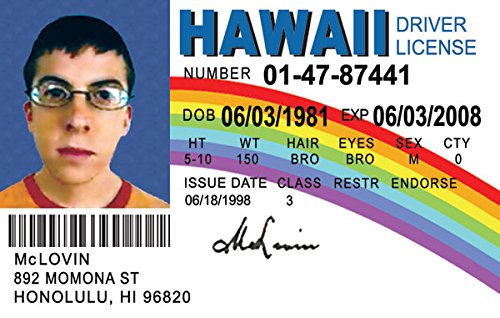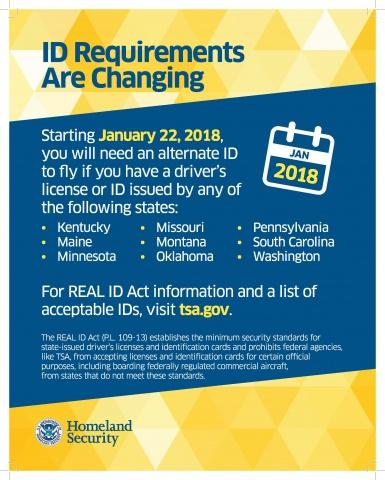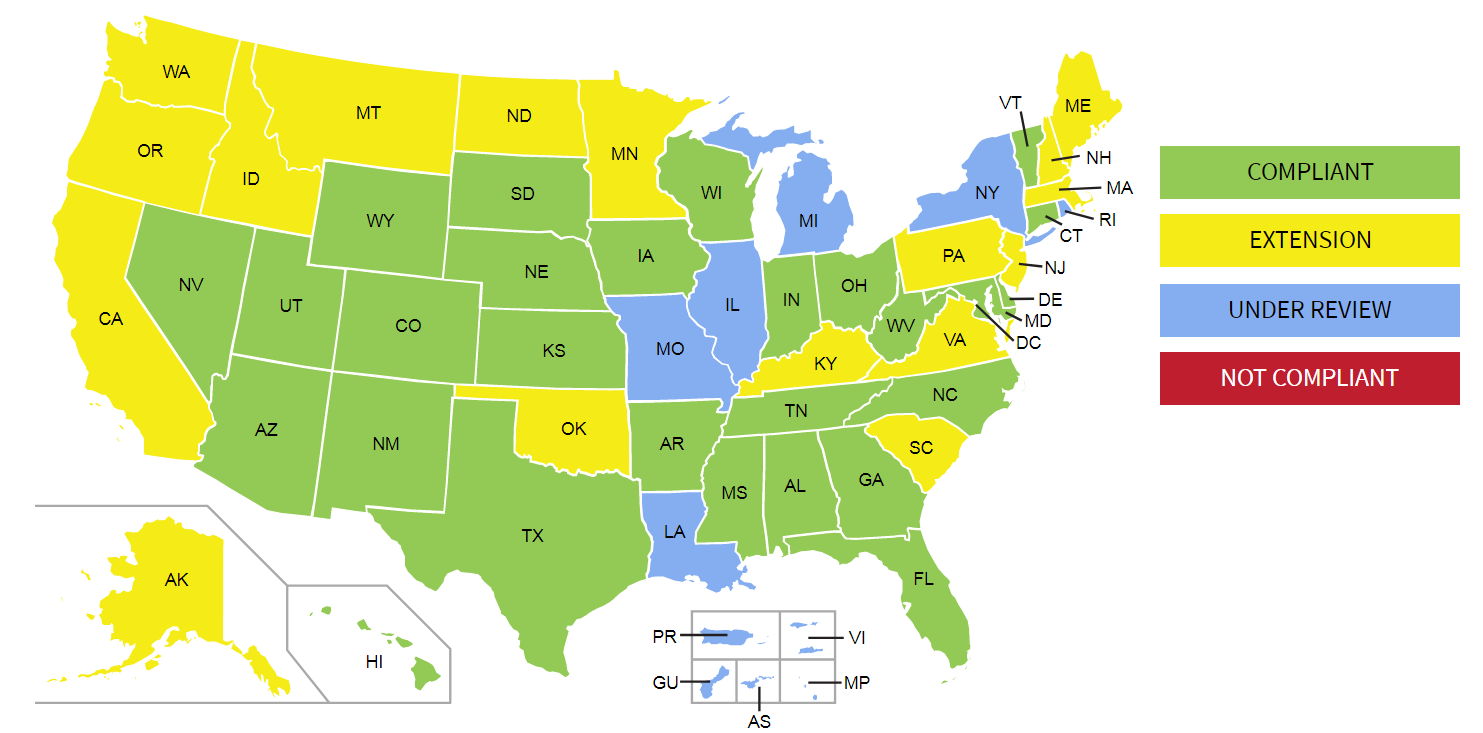The Real ID Act regulates, among other things, what state identification will be valid for federal purposes. Those federal purposes including identifying oneself to the Transportation Security Administration in order to board commercial aircraft. And several state drivers licenses do not comply with those rules. But DHS appears to largely have blinked on refusing these state IDs at security checkpoints next year.
A ‘real ID compliant’ license has to have a person’s full legal name, signature, date of birth, gender, a unique identifying number, home address, and a front-facing photo.
Prior to issuing a ‘real ID compliant’ license, a state has to require:
- A photo ID (they make you present a photo ID to get a photo ID..) or ID that includes full name and birth date
- Documentation of birth date (usually a birth certificate)
- Proof of legal status (you’re not an illegal alient) and social security number (something you didn’t even have to have when I was born)
- Documentation of your residential address

There are also specific anti-counterfeiting measures that must be used, and rules on providing the data on the card in a standard machine-readable format.
In fact states are required to share data in a searchable database that the federal government hasn’t built. It’s not clear that any state could be in technical compliance with the rules despite DHS declaring 27 states compliant. (14 states participate in a privately contracted searchable database.)
The TSA has been warning passengers that if their drivers license is from a non-compliant state it will not be accepted at the security checkpoint. Other government-issued identification, such as a passport, will be needed (although there are procedures to establish identity without presenting ID of course).

It’s a game of chicken, and two years ago the federal government backed down in advance of an election.
Airport security compliance was delayed until January 22, 2018 — a date which is purely arbitrary rather than provided for in law or regulation.
Now the Department of Homeland Security has granted extensions — through another arbitrary date, October 20, 2018 — to 15 states including 8 of the 9 states that they’ve been warning about in airports.
The only remaining states on the threat list are:
- New York
- Rhode Island
- Illinois
- Michigan
- Missouri
- Louisiana
The U.S. territories of American Samoa, Puerto Rico, Guam, the Virgin Islands, and the Mariana Islands remain under review as well.
And the only remaining state from the TSA warning sign is Missouri, which not only voted for the current administration in the 2016 election but has a close Senate race expected in 2018.
What’s happened is that the DHS has decided, again, that it isn’t actually prepared to carry out its threats to start picking on residents of certain states, when they try to exercise their right to travel on common-carrier airlines, on the basis of disagreement with state governments’ policy choices.
We can also confidently predict, I think, that the federal government won’t start to refuse access to flights to residents of half the states in the country two weeks before the midterm elections. We’ll see more hand waiving before October 2018.
ID checks began as security theater after TWA flight 800, President Clinton asked for things he could announce right away. Airlines used to ask for ID to make sure the person traveling was the one that bought the ticket, solely to restrict the resale market for airfare in order to support revenue management systems that increased the price of travel closer to departure (to prevent people from buying tickets cheap and reselling them as travel dates approached — still undercutting the airline’s price). Now the government does the airline’s work for them, ostensibly for security but a determined terrorist (the TSA has never caught a single one) doesn’t have much problem flying with fake documents.
The ‘security purpose’ of ID checks is to try to force people to fly under their real names, so that those names can be checked against the government’s highly flawed watch and do not fly lists. Anyone on such a list, intent on committing a terrorist act, would simply choose not to fly under their own name.
Those lists of course impose substantial burdens on the right to travel.
- People get added to the ‘do not fly list’ without any due process proceeding
- It’s not necessary to commit any disqualifying acts to be on that list (they’re pre-crime profiling: mere suspicion that someone might do something in the future)
- You cannot confront your accuser
- There’s almost no meaningful and timely redress procedures
I think everyone who was actually worried that their drivers license was going to be refused at security for flights come late January 2018 can probably let go of that fear at this point. While the government can always change its position and impose new limits on people, once again DHS has appeared to blink on these rules.



Also, the sign was just as accurate as one expects from TSA. They would still have accepted enhanced driver’s licenses or ID cards from MN or WA, since those have stricter issuance standards as documents usable for land border crossings under the Western Hemisphere Travel Initiative, but make no distinction between regular DL/ID and EDL/EID on this sign.
I think the TSA blinked as if someone was actually denied travel due to a non-compliant licence then that person would have standing to sue and perhaps end the whole thing!
So, for Michigan, are we clear until Oct 18, or not? Or not determined yet?
So, for all these years various law enforcement agencies never REALLY knew who we were when we handed over a driver’s license? Seriously? I’m glad TSA is fixing that…. Someone has their hand in the till for a BIG contract to develop yet another version of something that already exists and works reasonably well.
I agree with Christopher – just because a state is compliant does not mean that all their licenses are already there. Case in point: We live in a state that is compliant. Mine is because I had to renew recently. My wife’s, not so much, as hers does not expire for another several years, and she is in no hurry to go back to stand in line at the DMV just to present them with a plethora of documentation. So when the date comes, she won’t be compliant, even though the state overall is listed as such.
So how would that work?!? (And yes, she could present her passport, and she does have Global Entry/Precheck/KTN – that isn’t really the point of this exercise.)
I agree!